#dmitry merezhkovsky
Explore tagged Tumblr posts
Text
We sense the unknown, in our hearts.
— Dmitry Merezhkovsky, The Dedalus Book of Russian Decadence: Perversity, Despair and Collapse, transl by Kristen Lodge, Margo Shohl Rosen & Grigory Dashevsky, (2007)
#Russian#Дми́трий Серге́евич Мережко́вский#Dmitry Merezhkovsky#The Dedalus Book of Russian Decadence: Perversity; Despair and Collapse#Kristen Lodge#Margo Shohl Rosen#Grigory Dashevsky#(2007)
33 notes
·
View notes
Text
I have a list of books im either currently reading or going to read
The picture of Dorian gray - oscar Wilde
The death of the gods - Dmitry Merezhkovsky
Ulysses - James Joyce
The diary of Anne Frank - Anne Frank (obviously)
The portrait of the artist as a young man - James Joyce
Beowulf - no clue
Paradise lost - John Milton
The odyssey - Homer
The Decameron - Giovanni Boccaccio
Dubliners - James Joyce
Iliad - no clue
Resurrection of gods - Dmitry Merezhkovsky
Peter and Alexis - Dmitry Merezhkovsky
The old man and the sea - Ernest Hemingway
#the picture of dorian gray#oscar wilde#paradise lost#john milton#the odyssey#homer#the diary of anne frank#anne frank#the portrait of the artist as a young man#james joyce#beowulf#the decameron#giovanni boccaccio#dubliners#the iliad#the death of the gods#dmitry Merezhkovsky#resurrection of gods#peter and alexis#the old man and the sea#ernest hemingway#books and reading#books#reading#jesus christ i have a lot to read
5 notes
·
View notes
Text

Ослепительная снежность, Усыпительная нежность, Безнадежность, безмятежность – И бело, бело, бело. Сердце бедное забыло Всё, что будет, всё, что было, Чем страдало, что любило – Всё прошло, прошло, прошло…
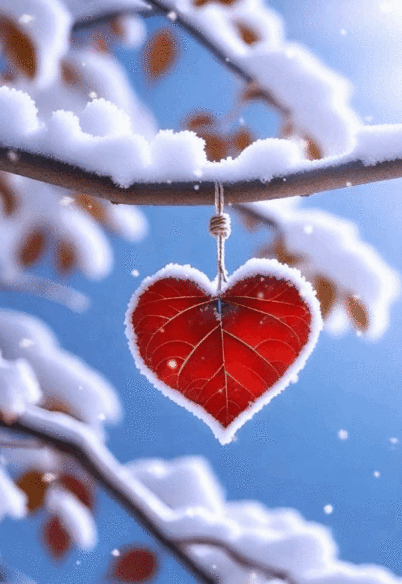
Я молюсь или играю, Я живу иль умираю, Я не знаю, я не знаю, Только тихо стынет кровь. И бело, бело безбрежно, Усыпительно и нежно, Безмятежно, безнадежно, Как последняя любовь! /Дмитрий Мережковский

Dazzling tenderness, Sleepy tenderness, Hopelessness, serenity - And white, white, white. The poor heart has forgotten All that will be, all that was, What it's suffered, what it's loved It's gone, gone, gone...
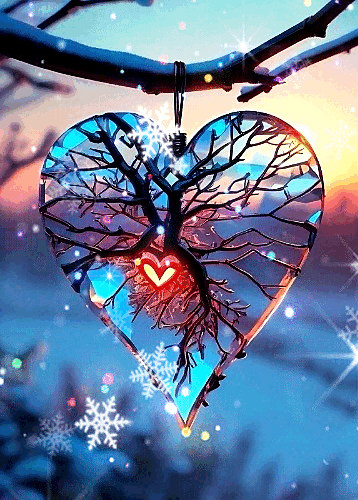
I pray or play, Am I living or dying, I don't know, I don't know, Only the blood is quietly freezing. And white, boundless white, Lollipop and tender, Serenely, hopelessly, Like the last love! /Dmitry Merezhkovsky
150 notes
·
View notes
Note
what would you say the best russian language books on alexander are?
Well. That’s a tough one, I haven’t read many. I personally like Troitsky (Николай Троицкий), he wrote a lot about the 19 century and Napoleon but I only read «Александр 1 и Наполеон» it’s a monograph about their respective lives and rule that seems quite informative on both.
if you want something more fictionalized try Dmitry Merezhkovsky’s novels. He wrote one on Paul’s assassination and one on Alexander, as part of a larger trilogy (Царство Зверя). I’m not a fan of how he portrays them but it is quite a revered part of russian literature and most adaptations of this historical period draw from his works to some degree
#it’s when ppl actually ask me for advice on literature that I am forced to reveal how little I read#sorry joseph
11 notes
·
View notes
Text
Dostoevski's great soul is like a battlefield, agitated, bloody, full of gnashing of teeth and sobbing of the wounded, a field on which two irreconcilable foes have met. Who will be the victor? No one, never. It is a hopeless, unending struggle. On whose side is the poet? We only know on whose side he wants to be. But in those very moments when you most trust his Christian humility, his wretchedness, and his chastity, —there suddenly happens something unusual and evil somewhere in the dark, dangerous corner of the author's psychological labyrinth where he slowly, like a spider, entices and entangles the inexperienced reader, so that you look, and hardly know whether it is he or not, and whether it really is, or you only imagine it to be, a terrible were-wolf, a double, or a wolf in a sheepskin. And the great inquisitor whispers with scarcely audible, insane laughter, which sends a chill through your body, and through the meekness of the martyr flickers the unlimited conceit of the devil, through the wretchedness and chastity of the pious sufferer the lustful cruelty of the devil.
On Pushkin, Dmitri Merezhkovski
2 notes
·
View notes
Text
"Similar, in some ways, to the writers, artists, and intellectuals associated with the Bloomsbury group in London, the Russian symbolists were involved in untraditional unions that privileged artistic creativity over procreation and were often tolerant of extramarital affairs, both heterosexual and homosexual in nature. This was the case not only for Gippius and Merezhkovsky, who were involved for many years in a mystical ménage-à-trois with Dmitry Filosofov, but also for other famous symbolist couples such as Alexander Blok and Liubov Mendeleeva and Viacheslav Ivanov and Lydia Zinovieva-Annibal. The writers’ fascination with sublimated love influenced not just their unorthodox marriage practices and their views about childbearing but also the ways in which they envisioned the creative process. Although symbolist writers such as Konstantin Balmont and Valery Briusov, who were more inclined toward the decadent mode, sought inspiration for their art in ecstatic moments or migi, many of the other writers found creative inspiration in the obverse, that is to say, the denial of procreation and the body."
— Jenifer Presto, Beyond the Flesh: Alexander Blok, Zinaida Gippius, and the Symbolist Sublimation of Sex
5 notes
·
View notes
Text

Dmitry Merezhkovsky, 20th Century Russian Poetry: Silver and Steel, from 'She Loves Me, She Loves Me Not', tr. Albert C. Todd
TEXT ID: Not by me you’ll live, not by me you’ll suffer, And I will pass like the shadow of clouds; But you will never forget me, And my distant call will not die out in you.
614 notes
·
View notes
Quote
I love or I don’t — despair comes easily to me: Though I may never be yours, Nonetheless there’s such tenderness at times In your eyes, as though I am loved.
Dmitry Merezhkovsky, from She Loves Me, She Loves Me Not; 20th Century Russian Poetry (ed. by Yevgeny Yevtushenko)
1K notes
·
View notes
Text

Oh, Angel of a dismal lonesomeness
From up above!
I hear again: my scary Angel says –
"Forget your love!
All of your dreams – so deeply sad and good –
Are now so real.
I've been your friend from early childhood
And always will.
My gaze can give you dreadful pain of waste,
Be sure in this,
But I will give you cold and heady taste
Of tender kiss.
I'm Angel, but a very cold and grim,
My faithful friend,
I'll be your sweetest and the saddest dream
Until your end.
My kiss will cure your lonely, mournful cry
And you will hear
The sounds of a forgotten lullaby.
Come here, come here!"
The darkness flows again from up above,
My Angel sees,
That all the people, that I care and love
Are enemies.
(1895)
4 notes
·
View notes
Text
The harmony of [...] nature and the mysterious, exhausted soul.
— Dmitry Merezhkovsky, The Dedalus Book of Russian Decadence: Perversity, Despair and Collapse, transl by Kristen Lodge, Margo Shohl Rosen & Grigory Dashevsky, (2007)
#Russian#Дми́трий Серге́евич Мережко́вский#Dmitry Merezhkovsky#The Dedalus Book of Russian Decadence: Perversity; Despair and Collapse#Kristen Lodge#Margo Shohl Rosen#Grigory Dashevsky#(2007)
21 notes
·
View notes
Text
“Sakia-Muni” (1885) by Dmitri Merezhkovsky
Dmitri Merezhkovsky (1866-1941) was a Russian poet, considered a co-founder of the Symbolist movement. This poem, sometimes titled “Sakya muni” in English, was translated by in 2006 by Tamara Vardomskaya, who writes:
“subsequent commenters took it to be literally about Shakyamuni Buddha, rather than as the thinly veiled deniable criticism of the Russian Orthodox Church of the 1880s that is obviously is in context; just like Verdi had to set his opera “Un ballo in maschera” in “America”, Merezhkovsky had to set his in a pseudo-“India” with other “gods.” (Hence my intentional misspelling as I re-transcribe the word he used; it’s a fantasy rather than any real religion.)”

Mid the mountain cliffs and the dark gorges Blasted by an early autumn gale, A crowd of homeless pilgrims to the Ganges Trudged one evening on the forest trail.
Beneath rags, their frail bodies strained Going blue from the cold wind and rain. For two days and for two bitter nights They had seen no sheltering roof nor light.
Mid the gloomy trees as thunder rumbled Something glimmered out on their path. ‘Twas a temple — through the doors they stumbled To find haven from the weather’s wrath.
In the empty shrine on them loomed down Marble Sakia-Muni on his throne, Glittering in his porphyry crown A colossal wondrous diamond stone.
Said one beggar, “Friends and brothers mine, No one sees us, dark the night and cruel. There’s much bread, and cloth, and silver fine They would give us for yon precious jewel.
Buddha doesn’t need it; brighter truly Do the diamond stars in myriad courses Gleam for him, lord of the heavenly forces, In the sky as in cups of lazuli…”
He gave sign; and through the temple hall The thieves softly to the statue crawl.
But when they reached out with trembling hands In their need the holy shrine to plunder A fiery whirlwind and a roar of thunder, Echoed out in the hinterlands, Threw the starving mendicants asunder.
And all froze from fear all around. But one of the beggars, calm and strong, Forward stepped out of the silent crowd And said to the deity, “You are wrong!
All those ages, were your priests all lying That you’re gentle, generous and kind, Like the sun, you conquer gloom and dying, And you love to comfort the maligned?
Yet you strike us for a petty pebble, Us, stretched in the dust before your name But immortal souls all the same! What’s the feat to make the wretched tremble With some show of fire and thunder? Shame!
Shame on you, lord of the heavenly skies! To deprive the poor of crusts of bread Full of dread and power you arise! King of kings, strike from the thunderheads,
Smite the madman who dares to defy — Here I stand and hold my head up high Equal to you with my fellow throng, And before all earth and all the sky Say: lord of the world, you are wrong!”
Silence — and a miracle transpired: So that they could take the jewel down The god’s statue in porphyry attired Bowed and bent to earth its visage crowned. Meekly kneeling, humble and contrite For a beggar crowd the lord of light, God, great god, lay on the dusty ground.
#rogues in fiction#poetry#Dmitri Merezhkovsky#Dmitry Merezhkovsky#a begging I will go#the potatoes of defiance#keeper#trs
19 notes
·
View notes
Text
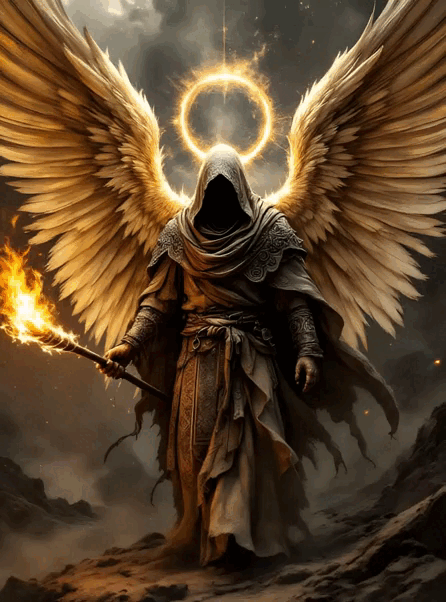
С потухшим факелом мой гений отлетает, Погас на маяке дрожащий огонек, И сердце без борьбы, без жалоб умирает, Как холодом ночным обвеянный цветок. Меня безум��ая надежда утомила: Я ждал, так долго ждал, что если бы теперь Исполнилась мечта, взошло мое светило — Как филина заря, меня бы ослепила В сияющий эдем отворенная дверь. Весь пыл души моей истратил я на грезы — Когда настанет жизнь, мне нечем будет жить. Я пролил над мечтой восторженные слезы — Когда придет любовь, не хватит сил любить! /Дмитрий Мережковский
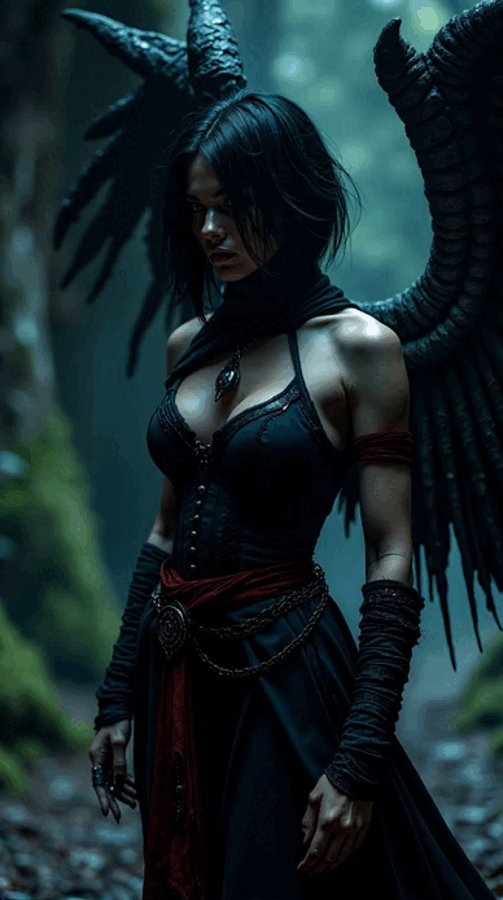
With the extinguished torch my genius flies away, The trembling light on the lighthouse has gone out, And the heart dies without a fight, without complaints, Like a flower blown by the cold of the night. The mad hope has tired me out: I waited, waited so long, that if now The dream came true, my luminary rose — Like an owl's dawn, I would be blinded By the open door to the shining Eden. I have spent all the ardor of my soul on dreams — When life comes, I will have nothing to live for. I shed ecstatic tears over a dream — When love comes, there will be no strength to love! /Dmitry Merezhkovsky
95 notes
·
View notes
Text
Read a book
The last picture I've just seen online gave me an idea to share something with you. This time I want to recommend you a book called "The Death of the Gods. Julian the Apostate" by Dmitry Sergeyevich Merezhkovsky, one of the best Russian writers of 19-20 centuries.
This novel tells us a story of the Roman Emperor Julian and his attempts to restore the cult of Olympian gods in Rome after Cristianity was recognised as the superior religion in Roman Empire and basically all old temples were closed or destroyed.
One of the most beautifull parts of this book is the description of the rare pieces of ancient culture, people who lived with a mindset different from the christian majority, and the ideas that are coming to life nowdays.
When I read this book a second time I finally realized that changes we see nowdays have actually started a long time ago. And it may seem like religious independence, human rights, women rights, lgbt rights movements and many other things appeared not a long time ago and are pretty modern, but in a reality it's a continuation of human struggle for freedom and independence.
So, yeah read a book. I will not regret it.


#Dmitry Merezhkovsky#The Death of the Gods#read a book#russian literature#books and libraries#book review#book recommendations#greek mythology#ancient greece#ancient rome#roman empire#ancient gods#christianity#religion#julian emperior
17 notes
·
View notes
Text
The Pagan and Christian Worlds in Pushkin and Tolstoy
Lev Tolstoy is the antipode, the complete opposite and negation of Pushkin in Russian literature. And, as often happens, opposites deceive the superficial observers by their external resemblances. Both in Pushkin and in our Lev Tolstoy there is oneness, equilibrium, peace. But Pushkin's oneness is based on the harmonious union of two worlds; the oneness of Tolstoy is based on the complete disunion, disruption, and violence, committed against one of the two equally great, equally divine elements. Pushkin's calm and tranquillity witness to a fullness of life; Lev Tolstoy's calm and tranquillity witness to a petrified immobility, to a deadening of the whole world. In Pushkin the thinker and artist are welded into one being; in Lev Tolstoy the thinker despises the artist, and the artist does not care for the thinker. Pushkin's chastity presupposes passion subject to the feeling of divine moderation; Lev Tolstoy's chastity flows from a desperate ascetic negation of love for a woman. Pushkin's hope, like Peter the Great's, was Russia's participation in the universal life of the spirit, in universal civilisation; but for that participation neither Pushkin nor Peter denied the native element, the peculiarities of the Russian spirit. Lev Tolstoy, an anarchist without violence, preaches the amalgamation of the warring nations into a universal brotherhood; but for that brotherhood he renounces love of country, — that jealous tenderness that filled the hearts of Pushkin and Peter; and with unsparing haughtiness despises those peculiar, for him too impassioned, pagan features of the separate nations, which he would like to weld like the living colours of the rainbow into one white, dead colour — into a cosmopolitan abstraction.
On Pushkin, Dmitri Merezhkovski
0 notes
Text





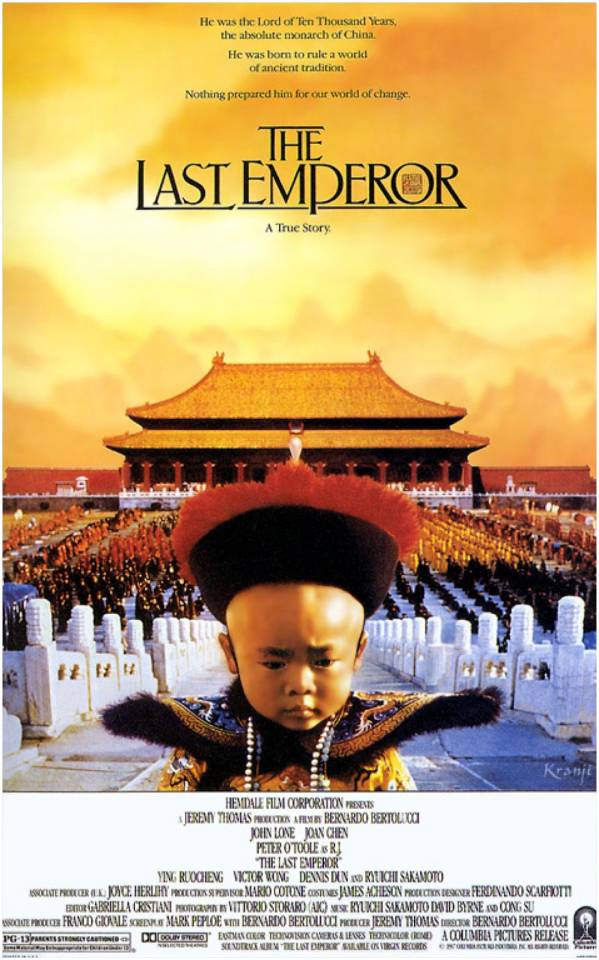
Posters included so nobody thinks they're voting for the more famous Mel Gibson vehicle
Top two vote-getters will move on to the next round. See pinned post for all groups!
#best best adapted screenplay tournament#best adapted screenplay#oscars#academy awards#the godfather#francis ford coppola#mario puzo#the patriot#hanns kräly#alfred neumann#ashley dukes#dmitry merezhkovsky#doctor zhivago#robert bolt#boris pasternak#blackkklansman#spike lee#david rabinowitz#charlie wachtel#kevin willmott#ron stallworth#sense and sensibility#sense & sensibility#emma thompson#jane austen#the last emperor#bernardo bertolucci#mark peploe#puyi#poll
1 note
·
View note
Photo

The thin blue smoke of sacrifice could be seen rising above the wood after the human figures had vanished and while the trireme made for open sea. From the fore-part of the ship there came upon the silence a solemn music ; the old monks were chanting in unison their evening prayer... But over the still water came faint and clear notes of another melody. It was the little shepherd, piping his nocturnal hymn to Pan, the old god of gaiety, of free dom and love.
1 note
·
View note